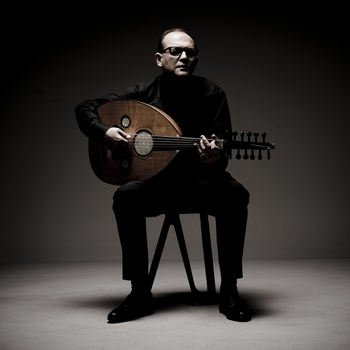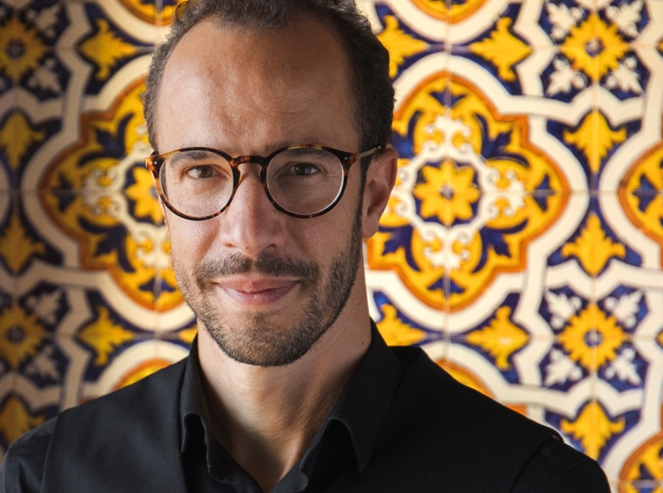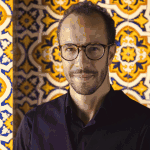jazz
Julio Resende

Présentation du spectacle
Nouvel artiste Accesconcert
JULIO RESENDE - FADO JAZZ
Présentation du nouvel album en concert à Paris au Sunside le 19 mars 2024
Tournée en quartet sur 2024 2025
Programmation possible dans le cadre du 50eme anniversaire de la révolution des Œillets qui a apporté la liberté au peuple portugais et a façonné sa culture, et pour laquelle il a dédié son nouvel album
Nouvel album - Sons of revolution - Act Music Novembre 2023
Julio Resende : piano
Bruno Chaveiro : guitare portugaise
André Rosinha : contrebasse
Alexandre Frazão : batterie
Salvatore Dobral : chant
Le dernier spectacle du pianiste et compositeur Júlio Resende, Fado Jazz – Sons of Revolution (Enfants de la Révolution), représente un voyage unique à travers l'âme musicale portugaise et est une célébration de la Liberté, du 50e anniversaire du 25 avril et de la relation avec l'Afrique.
À la suite de l'album précédent, "Fado Jazz Ensemble", ce nouvel album, sorti mondialement le 13 octobre 2023, et soutenu par deux grandes maisons de disques (Sony Music au Portugal et ACT Music dans le reste du monde), développe et approfondit la dialectique entre les deux styles musicaux mentionnés (Fado et Jazz), en comptant également sur la présence extraordinaire de Salvador Sobral dans la chanson "A Casa Dela".
Avec une musique originale composée par Júlio Resende, ce travail comprend également la présence de Bruno Chaveiro à la guitare portugaise (un instrument qui a une sonorité très particulière et typique), Alexandre Frazão à la batterie et à la percussion et André Rosinha à la contrebasse.
Le spectacle inclut également un geste inédit : étant Júlio Resende le seul artiste autorisé à utiliser la voix d'Amália Rodrigues dans ses spectacles, nous pourrons compter sur un duo impossible entre lui-même et l'extraordinaire Diva du Fado dans la chanson "Medo".
Biographie
Il est l'un des musiciens portugais les plus internationaux et compte déjà dix albums à son actif, dans un parcours qui commence dans le Jazz, passe par le Fado et la Parole, dans une recherche continue de la place parfaite qui n'existe jamais et qui ne lui permet ainsi d'explorer toujours plus, faisant en sorte que cette insatisfaction et cette irrévérence permettent à ceux qui l'écoutent de découvrir de nouvelles choses.
Après avoir enregistré ses trois premiers projets solo au format trio et quatuor de jazz ("Da Alma" - 2007, "Assim Falava Jazzatustra" - 2009, "You Taste Like a Song" - 2011), il décide de penser à l'improvisation sur d'autres genres musicaux, comme le Fado, où il croise tradition et modernité et lance, depuis son piano, un nouveau regard sur la chanson portugaise.
S'appuyant sur certains des thèmes les plus populaires d'Amália Rodrigues - la Diva du Fado - Júlio Resende présente de nouveaux défis : amener le Fado au piano, chanter les mélodies avec le piano plutôt que de simplement les accompagner, exprimer avec le piano tout ce que le Fado signifie. "Amália par Júlio Resende", édité en 2013 par Valentim de Carvalho, a été unanimement salué par toute la critique musicale portugaise et a reçu CHOC DISC*****5 Étoiles par le prestigieux magazine français CLASSICA, qui classe les meilleurs musiciens et instrumentistes du monde.
Étant un improvisateur talentueux et créatif, Júlio Resende va plus loin et risque un duo (im)possible avec Amália, servant la voix de la Diva avec son piano sur le thème "Medo". Quinze ans après la disparition d'Amália Rodrigues, Júlio Resende convainc Valentim de Carvalho (éditrice d'Amália) et, pour la première fois dans toute l'histoire, un musicien est autorisé à jouer avec la voix de la Diva.
À la suite de son premier projet solo intégrant Fado et Jazz, Júlio Resende a sorti en 2015 son cinquième album - "Fado & Further" - avec la participation de la Catalane Sílvia Pérez Cruz, l'une des plus grandes chanteuses d'Espagne.
Son sixième album ouvre le défi à un nouveau paradigme : le mot et la poésie, dans une heureuse rencontre avec le psychiatre et sexologue Júlio Machado Vaz. "Poesia Homónima" (2016) est la preuve que l'art n'a pas de barrières et ouvre la voie à une nouvelle relation du pianiste avec la poésie. Ce sont des poèmes d'Eugénio de Andrade et Gonçalo M. Tavares, dans la voix inconfondable de Júlio Machado Vaz, accompagnés par l'improvisation du piano de Júlio Resende.
Déjà en 2017, Júlio Resende lance ce qui est probablement la création la plus audacieuse et divergente de toutes. À partir de la poésie anglaise de Fernando Pessoa, il forme un groupe de pop-rock avec des influences de musique indie et électronique auquel il donne le nom d'Alexander Search, l'un des hétéronymes les plus importants de Pessoa qui a écrit presque exclusivement en anglais. L'album, sorti en juin, est entré directement à la troisième place du top national des ventes, apportant la certitude qu'il s'agit d'un pari réussi.
"Cinderella Cyborg", album sorti en 2018, est une aventure musicale, une liaison assumée entre l'homme et la machine. Entre l'acoustique du piano, de la batterie et de la contrebasse, et les sons électroniques des pads et des puces.
En décembre 2019, les pianistes Júlio Resende et Maria João Pires ont joué ensemble dans un spectacle unique où les esprits créatifs des deux artistes ont convergé. Dans un dialogue musical, ils ont cherché à créer une nouvelle "recette de concert" dont les expériences uniques en leur genre promeuvent des moments inégalables. Improvisation, fantaisie et inspiration, éléments essentiels dans la performance des pianistes, donnent lieu à un concert unique en son genre.
2020 a été l'année où Júlio Resende a sorti l'album "Júlio Resende - Fado Jazz Ensemble". Ce projet unique dans le monde du Jazz et de la World Music synthétise une vision créative d'un dialogue entre le Jazz et le Fado. L'ensemble instrumental est composé d'un trio de Jazz - piano, contrebasse et batterie - ainsi que de la guitare portugaise distincte qui donne un caractère idiosyncratique au spectacle.
En février 2022, Júlio Resende a sorti mondialement son album "Fado Jazz" sous le prestigieux label ACT Music, qui a reçu des évaluations exceptionnelles de la part des critiques les plus renommés dans le monde entier. En octobre 2023, il a lancé son album le plus récent, "Sons of Revolution", de nouveau par Sony Music (au Portugal) et ACT Music (reste du monde), qui comprend la participation de Salvador Sobral.
Discographie
Fado Jazz - ACT 2020
Cinderella Cyborg - 2018 Sony
Poesia Homonima - 2015 Valentim
Amalia por Julio Resende - 2013 Valentim
Dossier presse
" Ce que Júlio Resende fait avec le Fado, rappelle ce que Keith Jarrett fait avec les standards de Jazz." – António Muñoz Molina - El Pais (Espagne)
“ Un piano rempli de 'Saudade'. La vision de Júlio Resende sur le fado dans une perspective jazz est quelque chose de nouveau, et en même temps totalement naturel ” - France Musique
" Júlio Resende, la dernière découverte de la scène portugaise, est également la plus prometteuse. Son jeu est au même niveau que des pianistes tels que Stefano Bollani ou Yaron Herman."- France Musique
“Júlio Resende marie merveilleusement le jazz et le fado et emmène l'auditeur dans un magnifique voyage d'Alfama aux Açores.” - L’Alsace
“ L'un des musiciens portugais de premier plan à l'international et pionnier d'un nouveau genre : le Fado Jazz.”- Arte
" Júlio Resende est un véritable ambassadeur de la musique de son pays natal, le Portugal. Parmi ses projets les plus ambitieux et visionnaires se trouve le développement d'un mélange idiosyncrasique des sons et des émotions du Fado, possiblement la musique la plus caractéristique du Portugal, avec l'invention et le vocabulaire du Jazz. "Fado Jazz" est le titre adéquat pour sa présentation en tant que leader d'un quartet, où il démontre cette vision. Le projet pointe également vers de nouvelles directions pour le Jazz européen en général et marque les débuts de Resende avec un album complet pour la principale maison d'édition de Jazz européenne, ACT Music." - JAZZIZ “Jazz Travels” (EUA)
" Le pianiste portugais Júlio Resende est un pionnier dans la traduction du côté aigre-doux, mais aussi plus lumineux du Fado vers le langage du Jazz. Dans son pays natal, il se produit dans les plus grandes salles de concert et, en plus de ses propres projets, collabore régulièrement avec des stars internationales telles que le gagnant du Concours Eurovision de la Chanson 2017, Salvador Sobral, la grande pianiste classique Maria João Pires ou le chanteur brésilien Caetano Veloso. L'album de début de Júlio Resende chez ACT, "Fado Jazz", avec sa musique mélodique, émotionnelle et multicolore, est une nouvelle étape de ce pianiste exceptionnel sur la scène internationale."- ACT Music
Anouar Brahem English Page

Anouar Brahem Quartet - New program 2024
Anouar Brahem : oud
Klaus Gesing : bass clarinet, soprano saxophone
Björn Meyer : bass
Khaled Yassine : darbouka, bendir
For almost forty years and with a current discography spanning no less than 11 albums on the ECM label, Anouar Brahem has been constantly placing the age-old tradition of Arab music, whose emblem is his oud and its superb finesse, in different situations; not only does he set it in contrast against the free spirit and improvisation so typical of modern jazz, but also against the sophisticated harmonies of the erudite compositional tradition of the West and the refined forms of composition in other ancient cultural traditions from the Orient.
He has organized numerous cross-cultural encounters as well as juxtaposing different musical universes, thereby producing unsuspected potential in new but familiarsounding combinations, something which had never been done before. In 2009, he recorded "The Astounding Eyes of Rita", with a new group that included the soft melding of two sounds: the amazing fluidity of German-born Klaus Gesing on bass clarinet and the flowing notes on the bass guitar of Swedish-born Björn Meyer, to give a mixture of ascetic sophistication and sensuous lyricism so typical of oriental music, declined here by the music of the oud with its notes closely interwoven into the percussive background, played by Lebanese artist, Khaled Yassine. This group has had worldwide
success, both for its rich repertoire and the subtlety of the varied instrumentation, and now, ten years later, it is not only totally up-to-the-minute and more enduring and creative than ever, but Anouar Brahem had made a secret pact with himself never to look back and also vowed to renew his inspiration constantly by accompanying each new project with unusual orchestral combinations. So here, recognizing the lasting qualities of this group, he decided to add a new chapter to this story.
His main resource has been these years of shared experiences with the group, where their coherence and self-confidence has been increasing all the time. Anouar Brahem's new adventure puts his own terrain through the prism of this particular sound universe once again, daring to cast a backward glance at his whole career by mixing a few familiar compositions of the quartet with a scattering of older themes from other projects. This leads to further exploration of the orchestral possibilities of a decidedly unusual instrumentation whose origins lie in an extremely up-to-date kind of cross-cultural chamber music. Within this hugely expansive space, Anouar Brahem and his fellowmusicians
create a softly refined, graceful and dream-like world, borrowed as much
from the contemplative oriental tradition as from jazz. The resulting music, rigorously demanding and poetic, moves constantly between modesty and sensuality, nostalgia and contemplation: it is a magnificently intimate spiritual journey to the heart of sound.
The Astounding Eyes of Rita
Album September 2009, ECM
2019 marks the tenth anniversary of the album. And the interest of the audience is still there, as if it was the first year.
With :
Anouar Brahem: oud
Klaus Gesing: bass clarinet
Björn Meyer: bass
Khaled Yassine: darbouka, bendir
A delightful new assembled by Tunisian oud master Anouar Brahem.
The combination of the bass clarinet with the oud suggests a link to Anouar's Thimar trio, but this East/West line-up often feels closer to the more traditionally-inclined sounds of Barzakh or Conte de l'Incroyable Amour. Klaus Gesing, from Norma Winstone's Trio, and Björn Meyer, from Nik Bärtsch's Ronin, are both players with an affinity for musical sources beyond jazz, and they interact persuasively inside Brahem's music.
A dance of dark, warm sounds, urged onward by the darbouka and frame drum of Lebanese percussionist Khaled Yassine. The album is dedicated to the memory of Palestinian poet Mahmoud Darwish.
Souvenance
Music for oud
Album January 2015, ECM
This project is performed in 2 formations:
- the quartet
with Anouar Brahem (oud), François Couturier (piano), Klaus Gesing (bass clarinet ), Björn Meyer (bass)
- the quartet plus a string orchestra of 20 musicians
Probably Anouar Brahem has never gone so far into the balance between formal elegance and freedom of expression, lyricism and restraint, sensuality and asceticism, as he does here with this new repertoire which seems to ideally synthesize almost fifteen years of his personal and aesthetic quest for an authentic "common understanding" between Orient and Occident. Leading a brand-new Quartet, Brahem here revisits every facet of a musical universe that is at once melancholy and introspective in integrating his sensibilities and instrumental languageundeniably anchored in the Arab traditionwith the Impressionist, evanescent piano of colourist François Couturier, the pulsing sensuality of Björn Meyer's electric bass, and the misty, dreamlike, Nordic romanticism from the bass clarinet of Klaus Gesing.
As if to further emphasize the hybrid nature of his universe, here Brahem plunges his quartet for the first time into the sound-fabric of arrangements that are both sumptuous and minimalist, orchestrating a string-ensemble where the soloists (beginning with the melodic enchantments of the oud) are presented in an organic, voluptuous setting which is particularly stimulating. With ever more refinement in its melodic lines and at once contemplative and subtly narrative in its developments, the music contained in Souvenance possesses those qualities of self-evidence, naturalness and simplicity which are the hallmarks of works of genuine inspiration.
Other show already toured :
Blue Maqam
Album October 2017, ECM
Anouar Brahem: oud
Dave Holland: doublebass
Jack DeJohnette: drums
Django Bates: piano
Prestigious European tours in April 2018 and March 2019 :
Uppsala, Konsert & Kongress (Sweden) | Berlin, Boulez Saal (Germany) | London, Barbican (England) | Dublin, The National Concert Hall (Ireland) | Lyon, Auditorium (France) | Anvers, De Roma (Belgium) | Luxembourg, Philharmonic (Luxembourg) | Morges, Théâtre de Beausobre (Switzerland) | Köln, Kölner Philharmonic (Germany) | Paris, Paris Philharmonic (France) | Blagnac, Odyssud (France) | Zurich, Tonhalle (Germany) | Basel, Musical Theater (Switzerland) | Munich, Philharmoni (Germany) | Hamburg, Elbphilharmonic (Germany) | Lisbon, Gulbenkian Música (Portugal) | Brussels, Palais des Beaux-Arts (Belgium)
Biography
For almost forty years, Anouar Brahem, Tunisian composer and oud master, has been creating music both rooted in a highly sophisticated but ancestral culture and eminently contemporary in its global ambition. Anouar appears in many cross-cultural encounters, as well as developing entirely new links and similarities between styles and worlds whose potential closeness had never been considered until he discovered them. For him it was (and still is) a matter of highlighting the age-old Arab tradition of learned music, represented in its finesse by his oud, not only by confronting his instrument with modern jazz, but also with the sophisticated harmonies of the erudite compositional tradition of the West and refined forms from other ancient cultural traditions from the Orient.
His 11 albums on ECM, label acclaimed by the public and international critics alike (including Astrakan Café, Thimar, Le Pas du Chat Noir, Blue Maqams etc.), together with the triumphant success of his haunting music in concerts held in prestigious halls throughout the world, and his fellow-musicians including a remarkable selection of famous jazzmen such as Jan Gabarek, Dave Holland and jack DeJohnette are sufficient evidence to confirm Anouar's place as one of the most fascinating and inspirational artists in the current world of instrumental music.
His sensitive yet rigorous music constantly redefines a cleverly composite universe of poetry and culture, ever balancing between discretion and sensuality, nostalgia and contemplation.
Awards
De Klara's Classical Music Awards: "Best International CD - World" for Blue Maqams (Belgium, 2018)
Echo Jazz Award: "Best International Musician of the Year" for The Astounding Eyes of Rita (Germany, 2010)
Edison Award for Le Voyage de Sahar (The Netherlands, 2006)
Preis der Deutschen Schallplattenkritik (German Record Critics' Award) for Thimar (Germany, 1998)
National Music Award (Tunisia, 1985)
Reviews
The album is at once an extension and an audacious departure from the tradition of the oud. Despite his formidable knowledge of the maqarnat, an ornate system of modes that anchors Arabic music, he seldom bases his improvisations directly on the maqams. His phrasing is pure and uncluttered, expressing itself through silence nearly as often as sound. ... Composed of elegantly flowing lines and somber, breathlike silences, the music shimmers with the overtones of the piano. ... Mr. Brahem bases several of the tunes on spare, broken chords, repeated in the childlike manner of Satie. Simple though they are, however, they contain beguiling Arabesques. The three musicians rarely appear at once, performing as a trio on only seven of the album's 12 tracks. For the most part, you hear duets - piano and oud, oud and accordion, accordion and oud. The musicians often double each other's lines, but seldom in unison, which enhances the music's intimacy while producing a floating, echo effect.If every band projects "an image of coummunity," as the critic Greil Marcus once suggested, then Mr. Brahem's trio - part takht, part jazz trio, part chamber ensemble - evokes a kind of 21st century Andalusia, in which European and Arab sensibilities have merged so profoundly that the borders between them have dissolved. The image may be utopian, but its beauty is undeniable.
Adam Shatz, The New York Times
Throughout the record, the musicians maintain an exquisite balance and make only subtle changes in tempo or tone. Their sense of melancholy is so natural and comfortable it's childlike. On this tune, "Leila and the Land of the Carousel" a waltzing rhythm and revolving melody suggest a girl on that classic joyride...When he quit the oud for a while and played the piano instead, Anouar Brahem recovered his powers of musical myth-making. On this record, he creates a fairy tale setting and ultimately a storybook ending. The accordion lays down sustained chords like lengthening shadows in a forest. The piano conjures low-key sunlight and offers overtones of reconciliation. And in the arabesque path of "The Black Cat's Footsteps," Brahem finds a way back home to his beloved oud and to the songbird inside.
"All things considered", USA - National Public Radio
Son
Aucun son disponible pour cet artiste
Vidéo
Julio Resende
Vira Mais Cinco (para o Zeca)
Julio Resende
"Profecia" feat. Lina
























